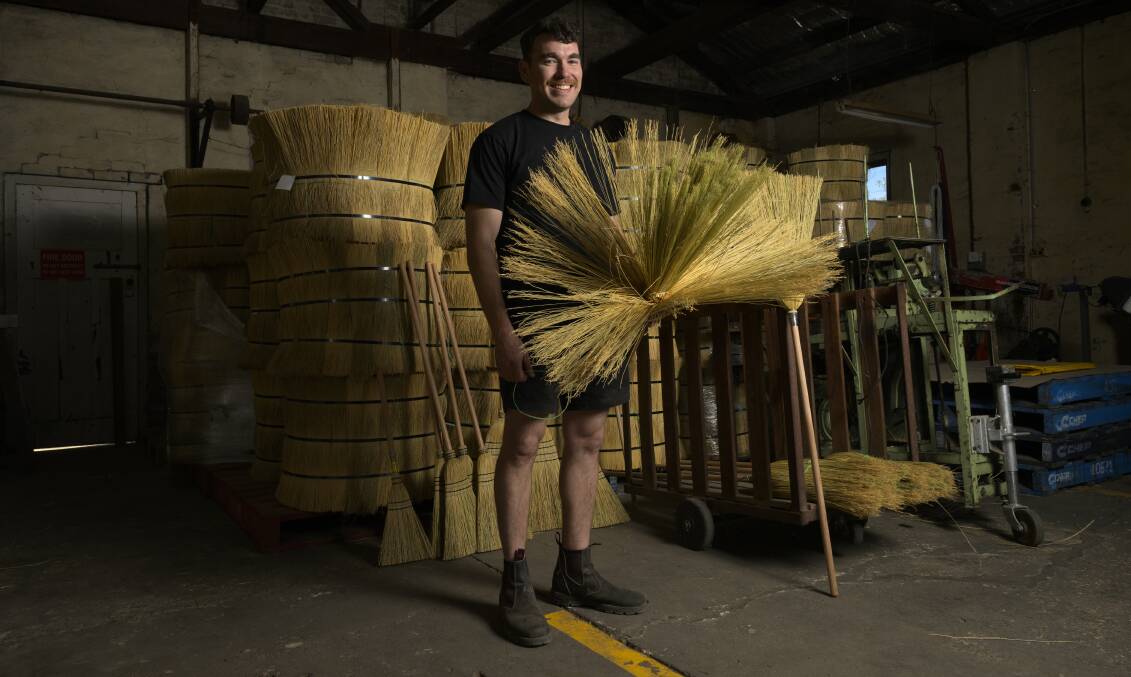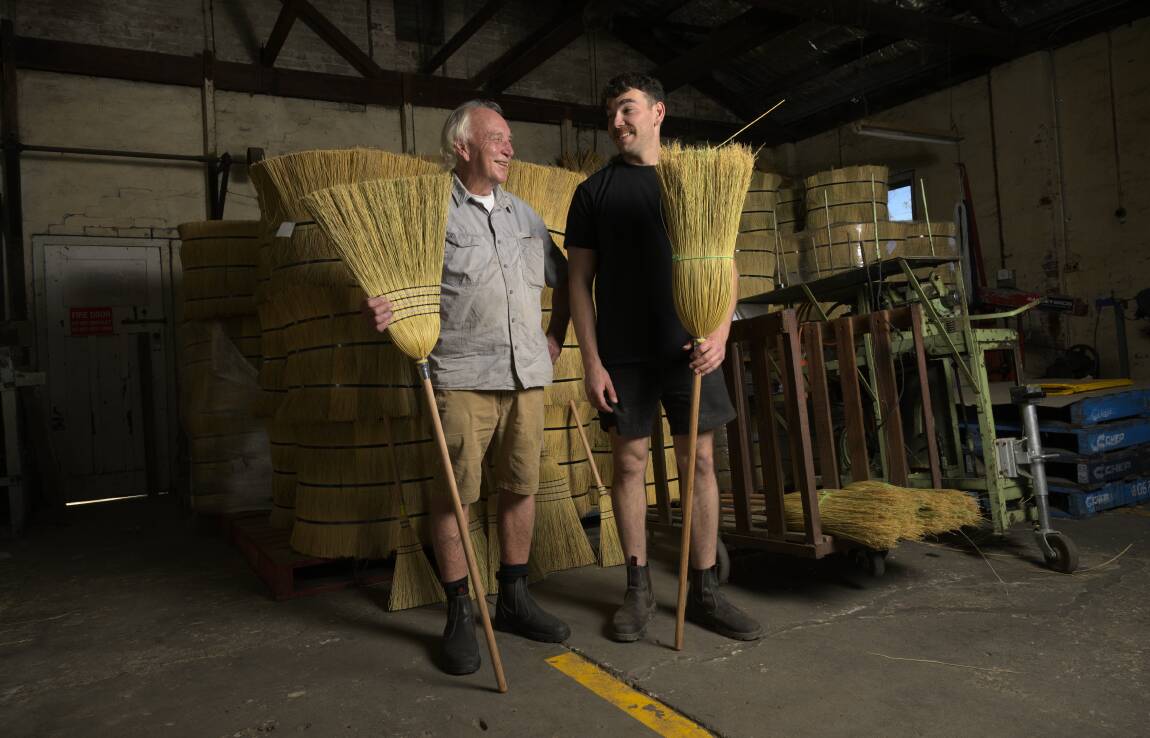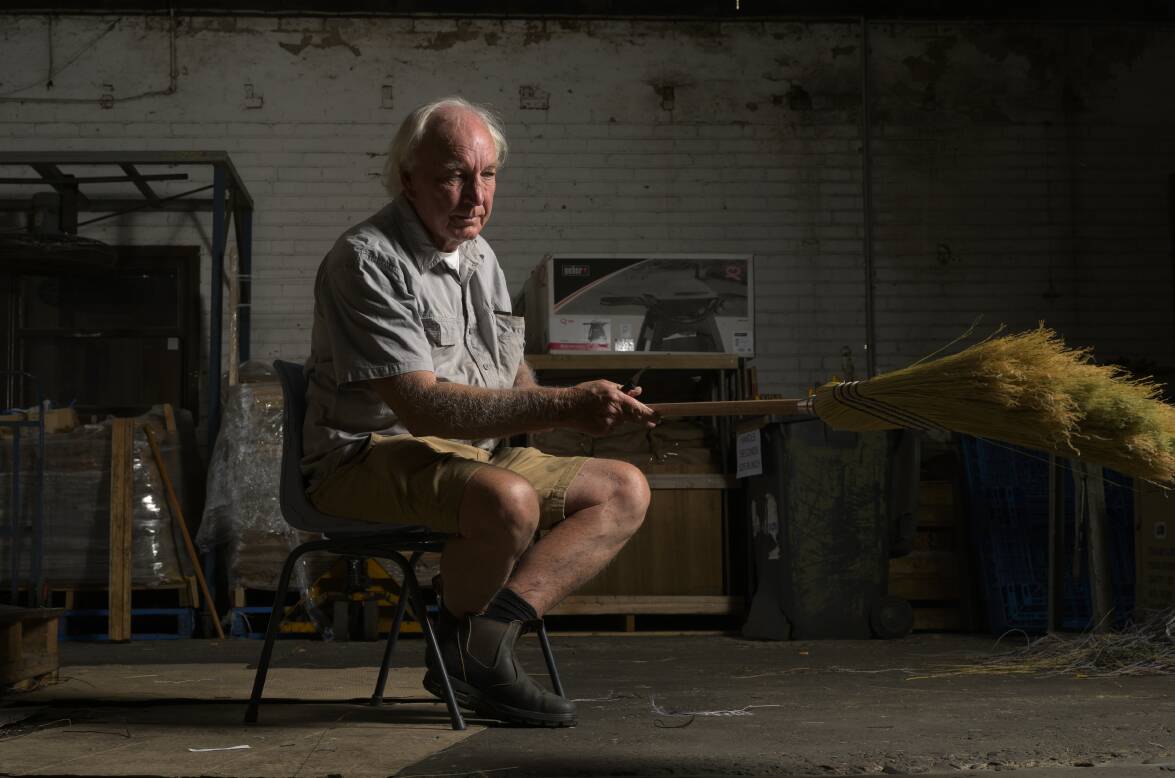Visiting Australia's last remaining broom factory, about two hours west of Canberra, is like stepping into a time machine.
The Tumut Broom Factory may seem like a relic on the outside, but is really a modern example of preserving knowledge of craftmanship.
The establishment is now run by father-and-son duo, Geoff and Andrew Wortes after business partner Robert Richards retired a year and half ago. Occasionally, one of Andrew's mates will come to help them out.
But together, the pair manually make close to 40 brooms on a good day.

Simply put, the broom factory is traditional.
Think piles and piles of harvested millet, 50- to 70-year-old mechanical machines dispersed in every room with rolls of twine and string, while finished brooms, small handhelds to large ones, are lined up for sale.
The Wortes regularly host tourists from Canberra, Sydney and Victoria who visit the town of about 7000 people. They enjoy walking them through the process of making an old-school broom.
"Bus tours of 25 people or more stop for about half an hour to find out the history about the broom factory," Andrew Wortes said.
"They love the smell of the millet when they walk through the door. It's like being on a farm or inside a hay shed.
"People always have stories from their childhood of their mum or dad using a broom back in the day, or pulling a bit of millet out to test the cake, to see if it's finished."

Mr Wortes has been managing the factory for about four years while also being an accomplished musician on the weekends.
He said he's heard every joke there is about brooms, especially ones to do with witches.
His grandfather started working in the factory as an apprentice in 1946. He then worked his way up and eventually bought the business in '86.
By then, Tumut's big broom industry started to slow down as more and more Australians began using vacuum cleaners. When the business was at its peak, Geoff Wortes said they produces custom-made brooms with different coloured sticks and strings.
Now they tend to stick to the natural look with only blue, black, white or red strings. Additionally, the essential raw material in broom making - millet - is a very hard crop to harvest.
"There's no one really growing it much anymore because of the processing. It's all hand harvested with a knife. There's also the threshing and the grinding process too," Mr Wortes said.

One of their friends in Gundagai, 35 kilomteres away, grows some millet but not on the large scale needed for factory production. Due to low local supply, the Tumut factory is forced to import the crop from a town near Monterrey, Mexico.
"There's a massive broom industry there with probably a 100 people doing the same job as me," Mr Wortes said.
There is another producer making brooms on his farm in Tumut, but the Wortes' workshop is the last original factory in the country.
Mr Wortes is keen to keep the business going after his father and said he wanted try and bring the factory into the 21st century.
"A lot of old trades tend to disappear. Once people stop doing them, the knowledge is forgotten," he said.
"That's why I wanted to learn how to make a broom. Dad's been doing it for a while and it's tradition."







